Running a modern supply chain is like navigating a complex, ever-changing maze. Just when you think you have a clear path, a new obstacle appears: a sudden surge in demand, a new tariff, a congested port, or a spike in freight costs. For even the most experienced logistics leaders, staying ahead of these challenges while driving efficiency and growth is a monumental task. You and your team are experts in your business, but are you also experts in every nuance of global logistics?
Many companies reach a point where their internal expertise is stretched thin. They face persistent issues like rising costs, inefficient processes, or an inability to scale, but lack the dedicated resources to diagnose and solve the root problems. This is where 3PL logistics consulting transforms from a potential expense into a powerful strategic investment. By bringing in outside expertise, you gain a fresh, objective perspective that can uncover hidden opportunities and solve long-standing problems, ultimately making your supply chain a source of competitive advantage. Is your supply chain as efficient and resilient as it could possibly be?
What is 3PL Logistics Consulting?
Unlike a standard 3PL relationship focused on day-to-day execution (like warehousing or transportation), 3PL logistics consulting is a strategic service. It involves partnering with a team of seasoned logistics professionals who act as an extension of your own team. Their sole focus is to analyze, optimize, and transform your supply chain operations.
These consultants leverage their deep industry knowledge, data analytics capabilities, and cross-sector experience to provide tailored solutions. They aren’t just selling a service; they are solving your specific business challenges. Think of them as supply chain architects who can redesign your network for optimal flow, or as doctors who can diagnose hidden inefficiencies and prescribe a cure.
When Should You Consider 3PL Consulting?
Many leaders hesitate to bring in consultants, believing they should be able to solve their own problems. However, recognizing the need for specialized support is a sign of strong leadership. You should consider 3PL consulting if you’re facing challenges like:
- Persistently Rising Costs: You’re seeing transportation, warehousing, or labor costs climb without a clear reason or solution.
- Operational Inefficiencies: Your team is constantly firefighting, dealing with fulfillment errors, shipping delays, or inventory inaccuracies.
- Difficulty Scaling: Your current logistics infrastructure is holding back your growth, unable to handle increased volume or expansion into new markets.
- Lack of Visibility: You don’t have a clear, real-time view of your inventory, shipments, or performance metrics, making data-driven decisions nearly impossible.
- Upcoming Major Changes: You are planning a new product launch, entering an international market, or undergoing a merger and need to ensure your supply chain is ready.
If any of these sound familiar, an expert consultant can provide the focus and logistics expertise needed to break through the plateau.
The Core Benefits of Expert Logistics Consulting
Engaging a 3PL consultant delivers tangible returns by addressing the most critical aspects of your supply chain performance. The value goes far beyond a simple report; it’s about implementing lasting change.
1. Unlock Significant Cost Savings
One of the most immediate benefits of 3PL consulting is the identification of cost-saving opportunities. An experienced consultant has the tools and benchmarks to analyze your operations with a fine-toothed comb.
- Network Optimization: Consultants use advanced modeling software to determine the ideal locations for your distribution centers. The right network design can dramatically reduce transportation costs, often a company’s largest logistics expense, by shortening transit distances. A typical network optimization study can identify savings of 10-15%.
- Carrier and Rate Negotiation: With deep knowledge of the freight market, consultants can analyze your shipping patterns and negotiate more favorable rates with carriers. They can also identify opportunities to switch modes (e.g., from LTL to multi-stop truckload) to improve efficiency.
- Warehouse Process Improvement: By analyzing warehouse layouts, picking paths, and labor utilization, consultants can redesign workflows to increase productivity and reduce labor costs per unit.
2. Drive Operational Efficiency and Productivity
Inefficiency is a silent drain on profitability. It creates friction, slows down processes, and frustrates both employees and customers. 3PL consultants are experts in lean methodologies and process engineering, applying these principles to your logistics.
They will conduct a thorough assessment of your operations, from receiving to fulfillment, to identify bottlenecks. This could involve recommending a new warehouse management system (WMS), reconfiguring your storage layout to prioritize fast-moving items, or implementing a new inventory management strategy like cycle counting to improve accuracy. The result is a smoother, faster operation that can handle more volume with less effort.
3. Enhance Visibility and Technology Integration
You cannot improve what you cannot measure. A common challenge for growing companies is a fragmented technology landscape, with different systems that don’t communicate. This lack of integration leads to poor visibility and decisions based on incomplete or outdated information.
A 3PL consulting team can perform a full technology audit. They will assess your current systems and recommend solutions that provide a single source of truth for your entire supply chain. This might involve implementing a robust WMS, a Transportation Management System (TMS), or a unified analytics platform. This enhanced visibility empowers your team to make proactive, data-driven decisions.
4. Mitigate Risk and Build Resilience
Modern supply chains are vulnerable to a wide range of disruptions. A consultant can help you build a more resilient operation by identifying and mitigating potential risks. They perform “stress tests” on your supply chain to find single points of failure, such as reliance on a single supplier or a single transportation lane.
Based on this analysis, they can help you develop a robust business continuity plan. This could involve diversifying your carrier base, establishing backup inventory in a different geographic region, or improving demand forecasting to better prepare for fluctuations. This proactive approach to risk management protects your revenue and your brand reputation when the unexpected occurs. How prepared is your supply chain to handle its next major disruption?
What to Expect from a 3PL Consulting Engagement
A successful consulting engagement is a collaborative partnership. While the process can vary, it typically follows a structured approach:
- Discovery and Assessment: The consultants begin by immersing themselves in your business. They will interview key stakeholders, tour your facilities, and gather extensive data on your current processes and performance.
- Analysis and Diagnosis: Using the data gathered, the team analyzes your operations against industry benchmarks and best practices. They identify root causes of problems and quantify the financial and operational impact.
- Solution Design and Recommendation: The consultants develop a set of specific, actionable recommendations. This is not a generic report but a detailed roadmap tailored to your business, complete with an implementation plan, timeline, and expected ROI.
- Implementation Support: The best consultants don’t just hand you a plan and walk away. They work alongside your team to help implement the recommended changes, providing project management, training, and support to ensure a smooth transition.
- Performance Monitoring: After implementation, the consulting team helps you track key performance indicators (KPIs) to measure the success of the project and ensure the improvements are sustained over the long term.
Finding the Right Consulting Partner
Choosing the right 3PL consulting partner is critical. Look for a firm that has a proven track record and deep expertise in your specific industry. Ask for case studies and references to validate their experience.
Most importantly, look for a partner who prioritizes a collaborative approach. The goal isn’t for them to simply tell you what to do, but to work with you to build internal capabilities and create a culture of continuous improvement. The right partner leaves your team stronger and more knowledgeable than they were before.
Conclusion: Transform Your Supply Chain into a Strategic Asset
Your supply chain shouldn’t be a source of stress or a barrier to growth. With the right strategy and support, it can be a powerful engine for efficiency, customer satisfaction, and profitability. Leveraging 3PL logistics consulting provides the specialized expertise and objective perspective needed to unlock that potential.
By partnering with experts, you can solve complex challenges, optimize your network, and build a resilient operation that is ready for the future. The question isn’t whether you can afford to hire a consultant; it’s whether you can afford not to. It’s time to stop reacting to problems and start proactively designing the supply chain your business deserves.


